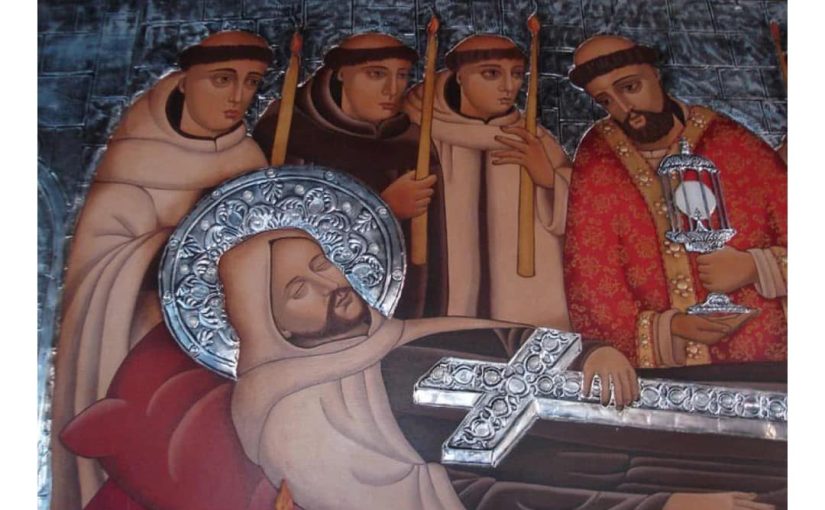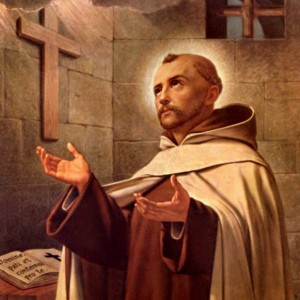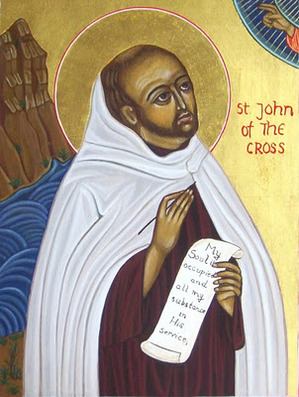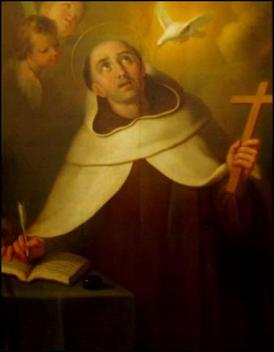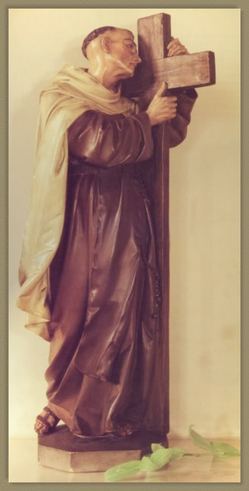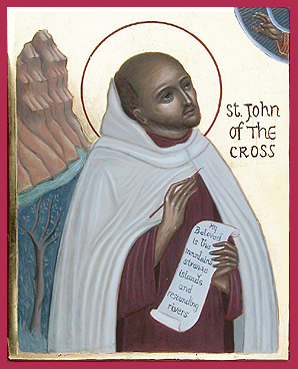“Blessed be the Lady who intends me to quit this life this Saturday. I know that God, our Lord, is about to do me the mercy and favor of allowing me to recite Matins in Heaven.”
“The little white dove
Has returned to the ark with the bough;
And now the turtle-dove
Its desired mate
On the green banks has found.”
St. John of the Cross was born in 1542 in Fontiveros, Spain. The son of a poor but noble family, he was raised in an orphanage. Recognized for his joyful spirit, he was sent to a Jesuit College. He entered the Carmelite Order, studied theology at Salamanca, and was ordained a priest. He supported St. Teresa of Avila’s reforms of the Order. Opponents to the reforms imprisoned him in deplorable conditions. He died in 1591 and was canonized in 1726. In recognition of his mystical writings; The Dark Night of the Soul, Ascent of Mount Carmel, Spiritual Canticle, and Living Flame of Love, he was declared a Doctor of the Church in 1926.
St John of the Cross pray for us
